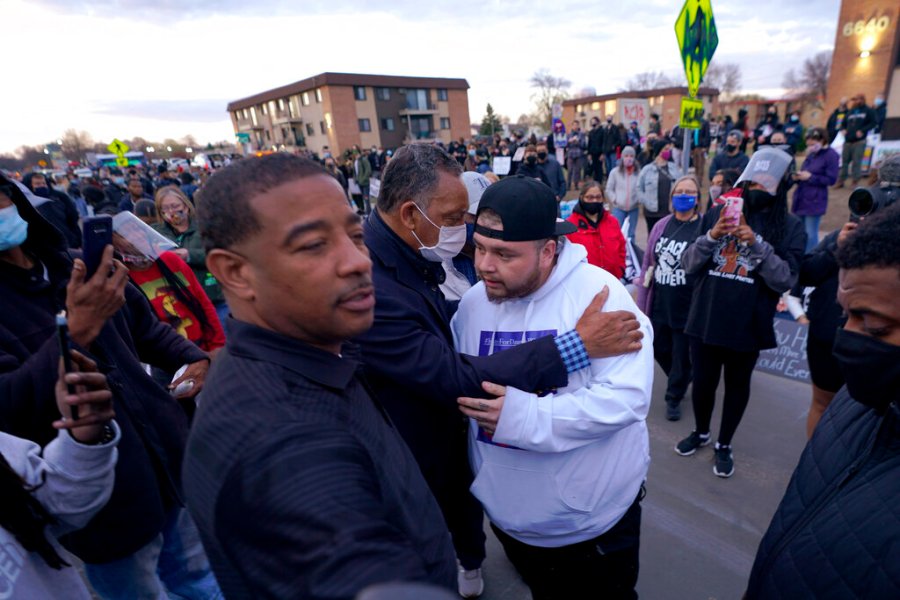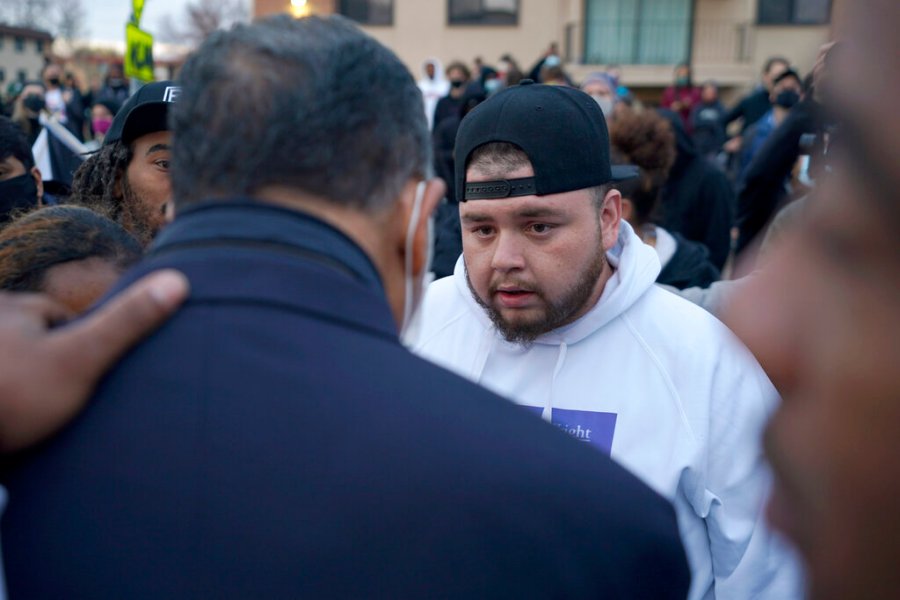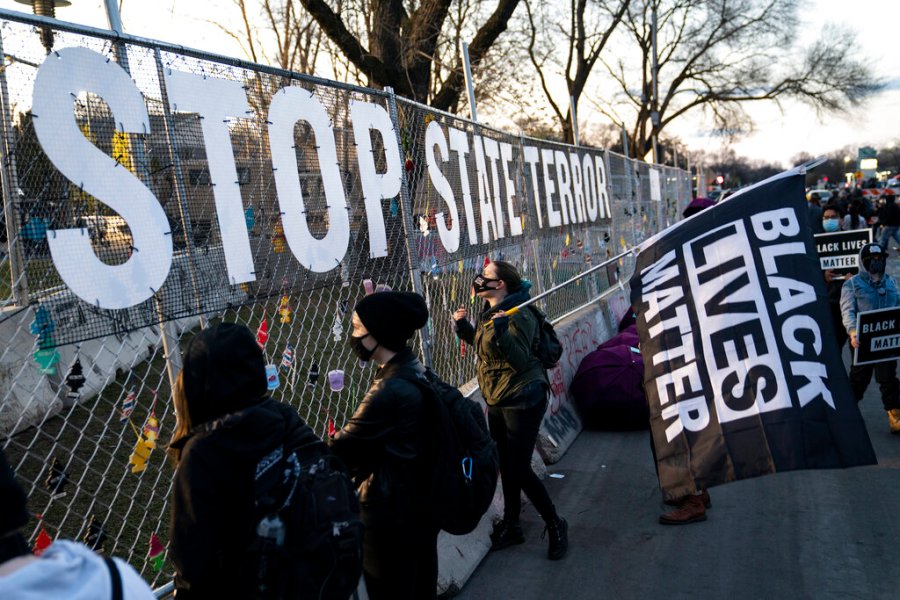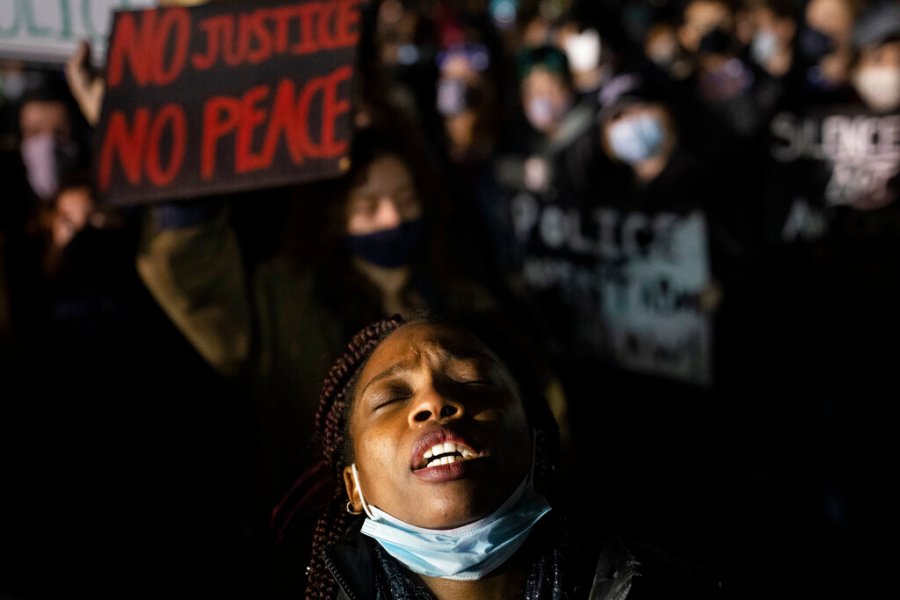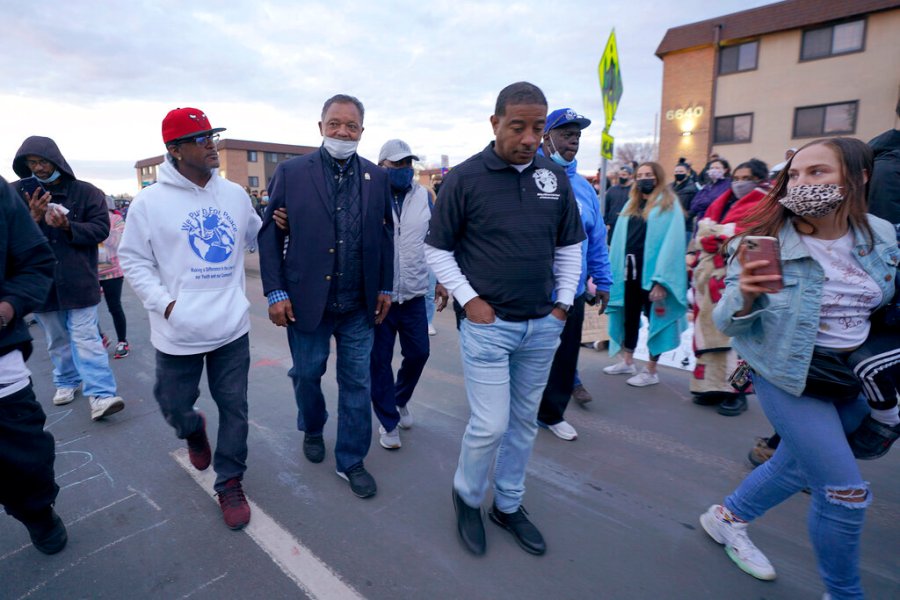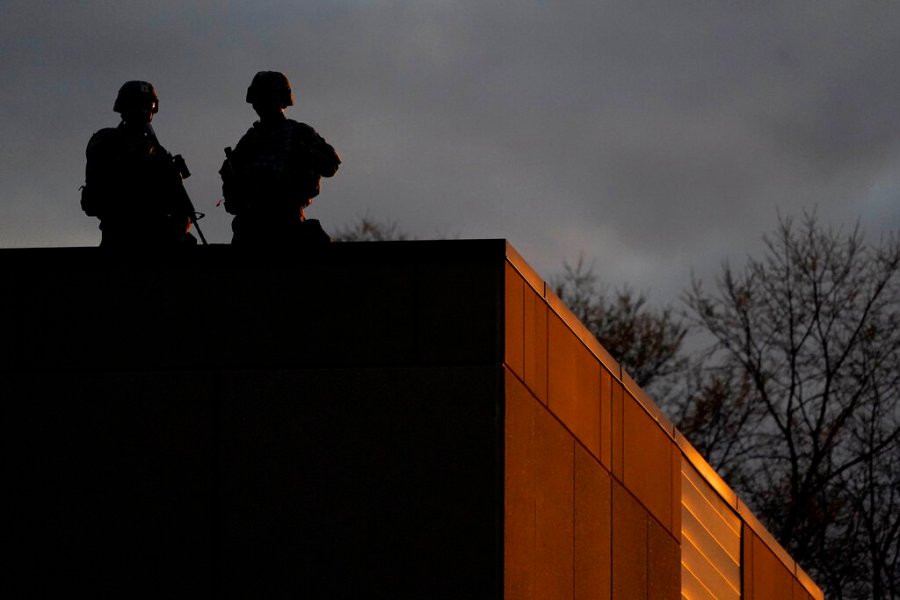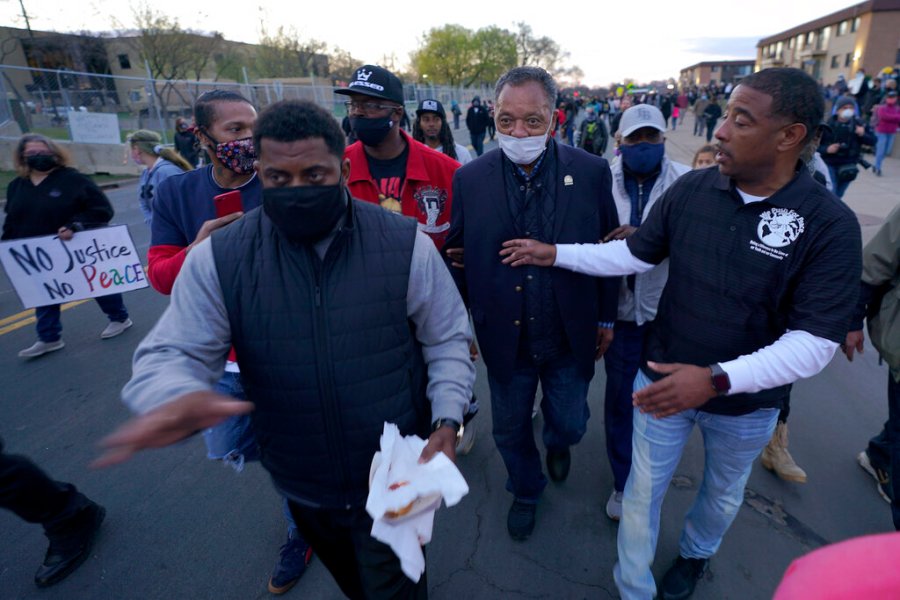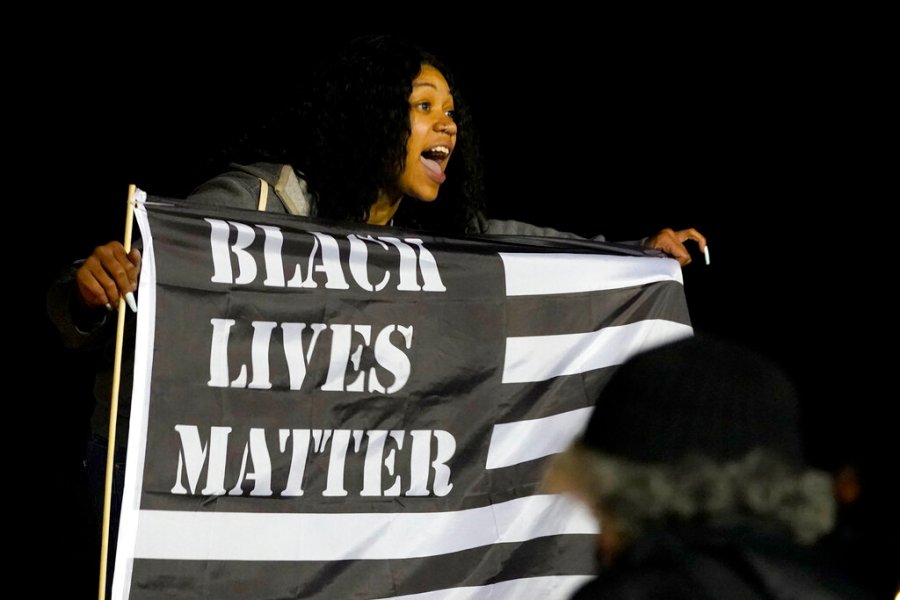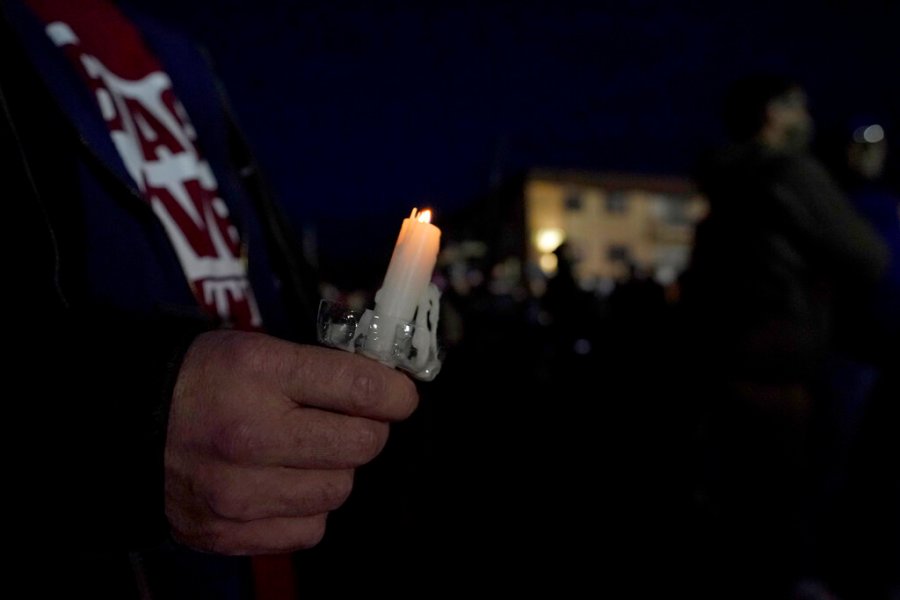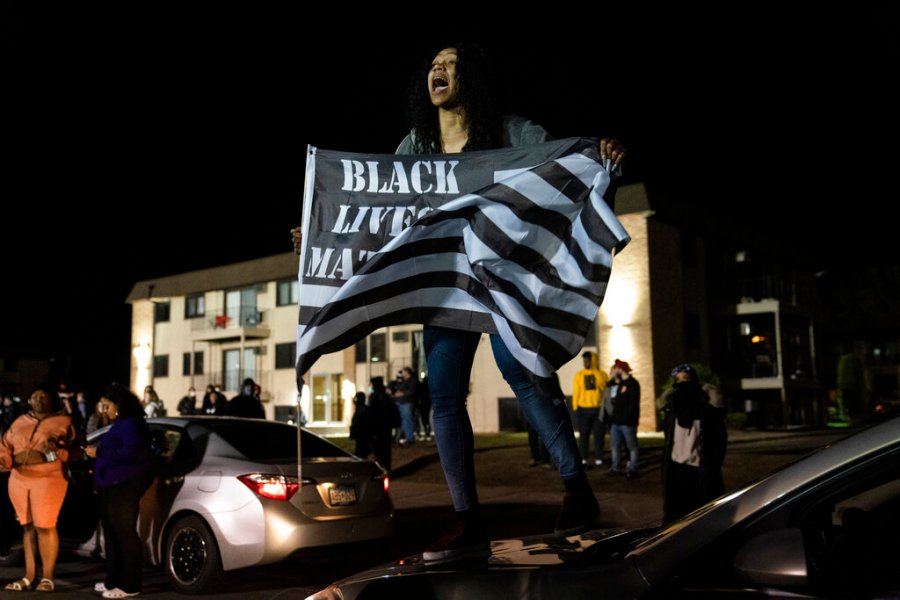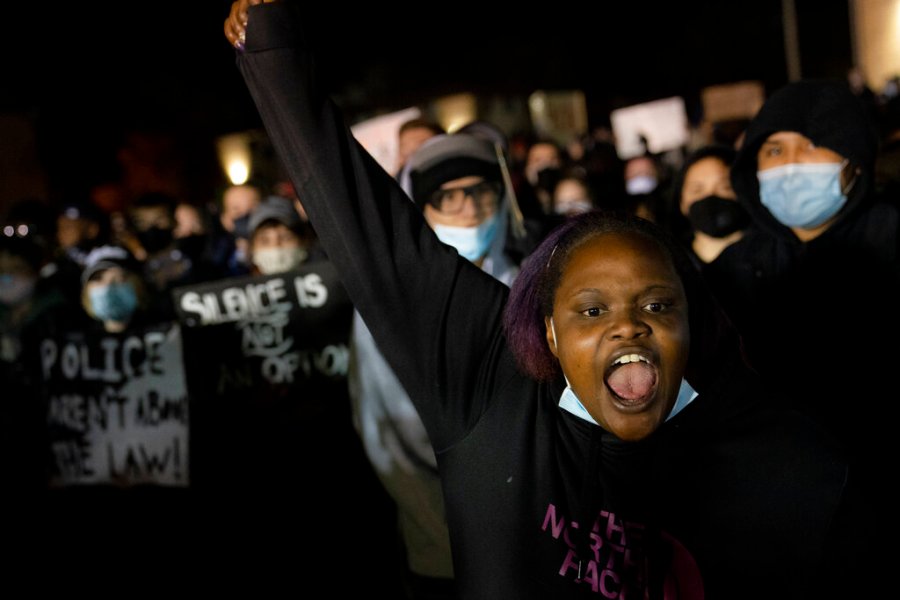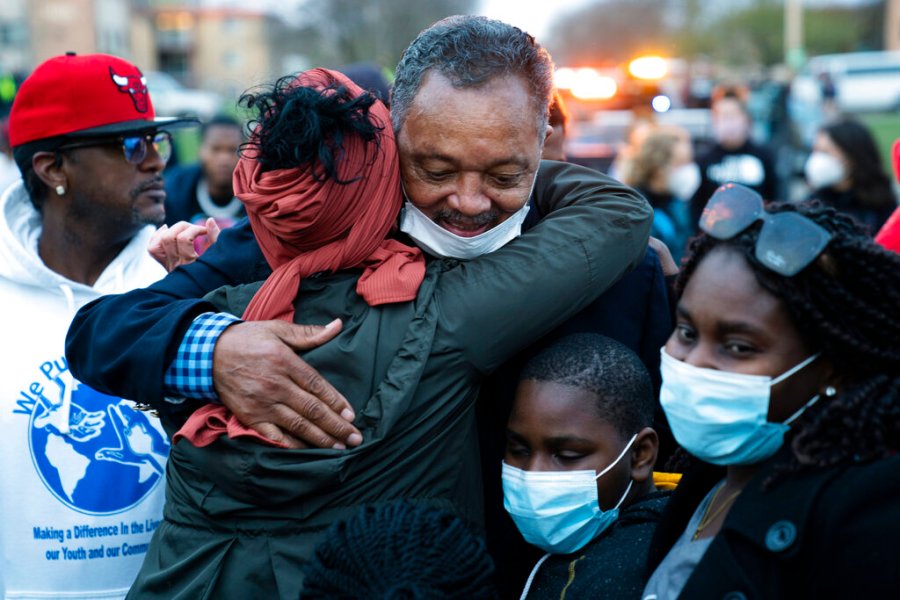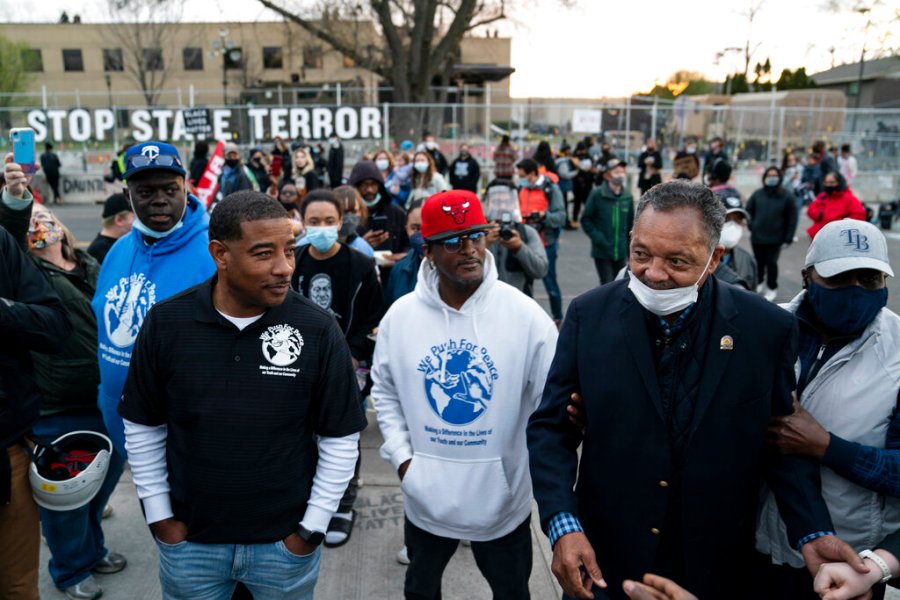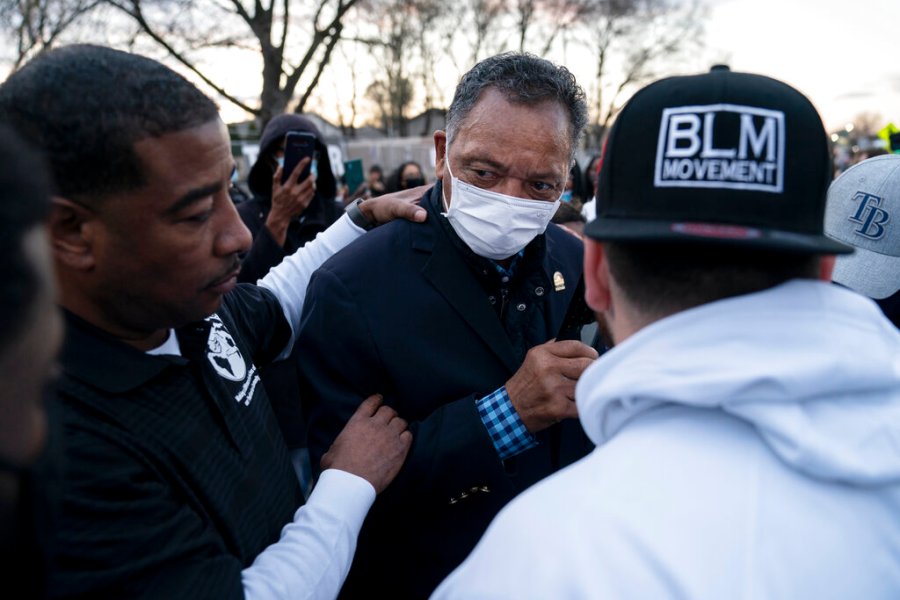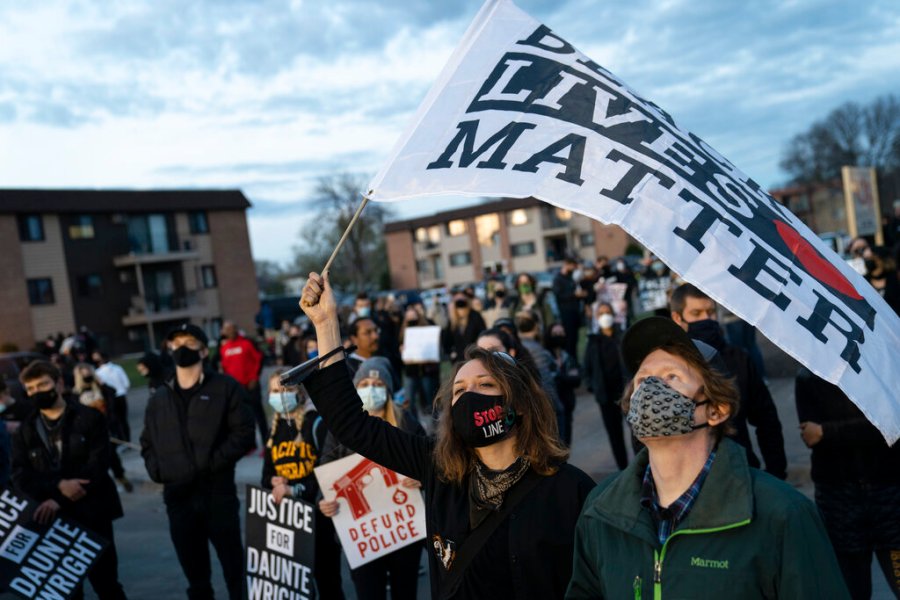BROOKLYN CENTER, Minn. (AP) — As protests intensified in the Minneapolis suburb where a police officer fatally shot Daunte Wright, a group of Black men joined the crowd intent on keeping the peace and preventing protests from escalating into violence.
Hundreds of people have gathered outside the heavily guarded Brooklyn Center police station every night since Sunday, when former Officer Kim Potter, who is white, shot the 20-year-old Black motorist during a traffic stop. Despite the mayor’s calls for law enforcement and protesters to scale back their tactics, the nights have often ended in objects hurled, tear gas and arrests.
The Black men at the edge of the crowd wear yellow patches on protective vests that identify them as members of the Minnesota Freedom Fighters, a group formed to provide security in Minneapolis’ north side neighborhoods during unrest following the death of George Floyd last year. They are not shy about casting a forceful image — the group’s Facebook page features members posing with assault-style weapons and describes itself as an “elite security unit” — but on Friday the Freedom Fighters didn’t appear to be armed and said they intended only to encourage peaceful protesting.
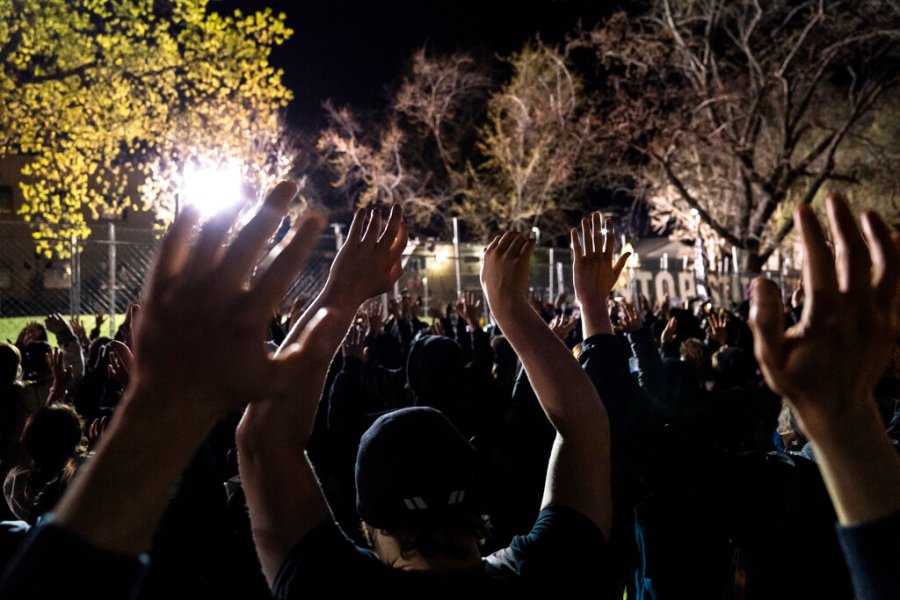
As several people began to rattle a fence protecting the Brooklyn Center police department, the Freedom Fighters communicated to each other over walkie-talkies. They declined to say how many are in their group.
On recent nights, the Freedom Fighters have moved through the crowd in formation, wearing body armor and dark clothing, weaving past umbrella-wielding demonstrators to create separation along a double-layer perimeter security fence. Their passive tactics are intended to deescalate the tension, preventing agitators from pressing forward and provoking the law enforcement officers standing at attention with pepper-ball and less-lethal sponge grenade launchers at the ready.
“We can keep it peaceful,” said Tyrone Hartwell, a 36-year-old former U.S. Marine who belongs to the group. “There’s always somebody in the group that wants to incite something,” adding that throwing objects at the police takes the focus away from their calls for justice and saps energy from the movement.
Minneapolis is on edge — simultaneously watching the trial of former police officer Derek Chauvin in Floyd’s death and reeling from the shooting of Wright. In the midst of that, Hartwell said the Freedom Fighters are trying to push the movement for racial justice forward, while keeping at bay the violence and destruction that often acutely affects minority communities.
“This is a very difficult time in the history of this country,” said U.S. Rep. Maxine Waters, a Democrat from California who joined the protest on Saturday. “We have to let people know that we are not going to be satisfied unless we get justice in these cases.”
The 82-year-old congresswoman decried the 11 p.m. curfew set by authorities as a way to tamp down demonstrations and encouraged the crowd of roughly 150 people to “stay in the street.”
But local residents have also suffered from the nightly clashes between law enforcement and demonstrators, Hartwell said. He pointed to the apartments across the street from the Brooklyn Center police department, where residents have complained of tear gas streaming into their homes.
The Freedom Fighters formed after the NAACP put out a call for armed men to organize and protect their neighborhoods from looting and arson following Floyd’s death. Hartwell said groups of white people had come into predominantly Black communities and harassed children.
They have also formed relationships with the city government and police department. City spokeswoman Sarah McKenzie said there are several “formal and informal relationships” with members of the Freedom Fighters, but it does not fund or contract with the organization because it is an armed group.
However, some demonstrators said those ties mean the Freedom Fighters act at the behest of the police and are not aggressive enough in calling them to account.
The Freedom Fighters have clashed this week with umbrella-carrying demonstrators intent on provoking law enforcement officers. On Saturday, members of the group removed a group of demonstrators who had tried to cut the chains connecting the fencing outside the police department.
For much of the night, the street outside the police department was more subdued than in previous nights — protesters chanted and spat insults towards police, but at times also danced to music.
Law enforcement also refrained from firing the flash-bang canisters and sponge grenades they had employed on previous nights. And as curfew passed, law enforcement officers did not advance on the crowd; instead, it mostly dissipated on its own.
Another group of protesters tried a different tack by traveling to Stillwater, Minnesota, to protest at the home of Washington County Attorney Pete Orput to push him to bring more severe charges against Potter. A crowd of roughly 100 people marched through the streets of his neighborhood.
One of the organizers of the protest, lawyer and activist Nekima Levy Armstrong, said Orput came out of his home at one point to explain why his office charged Potter with second-degree manslaughter, instead of more severe murder charges.
She credited him with engaging with the protesters, something she said never happened with Hennepin County Attorney Mike Freeman after Floyd died. The Minnesota Attorney General eventually took over prosecution, and Freeman sold his home after frequent protests.
But Levy Armstrong indicated they would not let up the pressure on Orput, saying, “We are committed to continuing to have conversations with him until we see some murder charges.”

